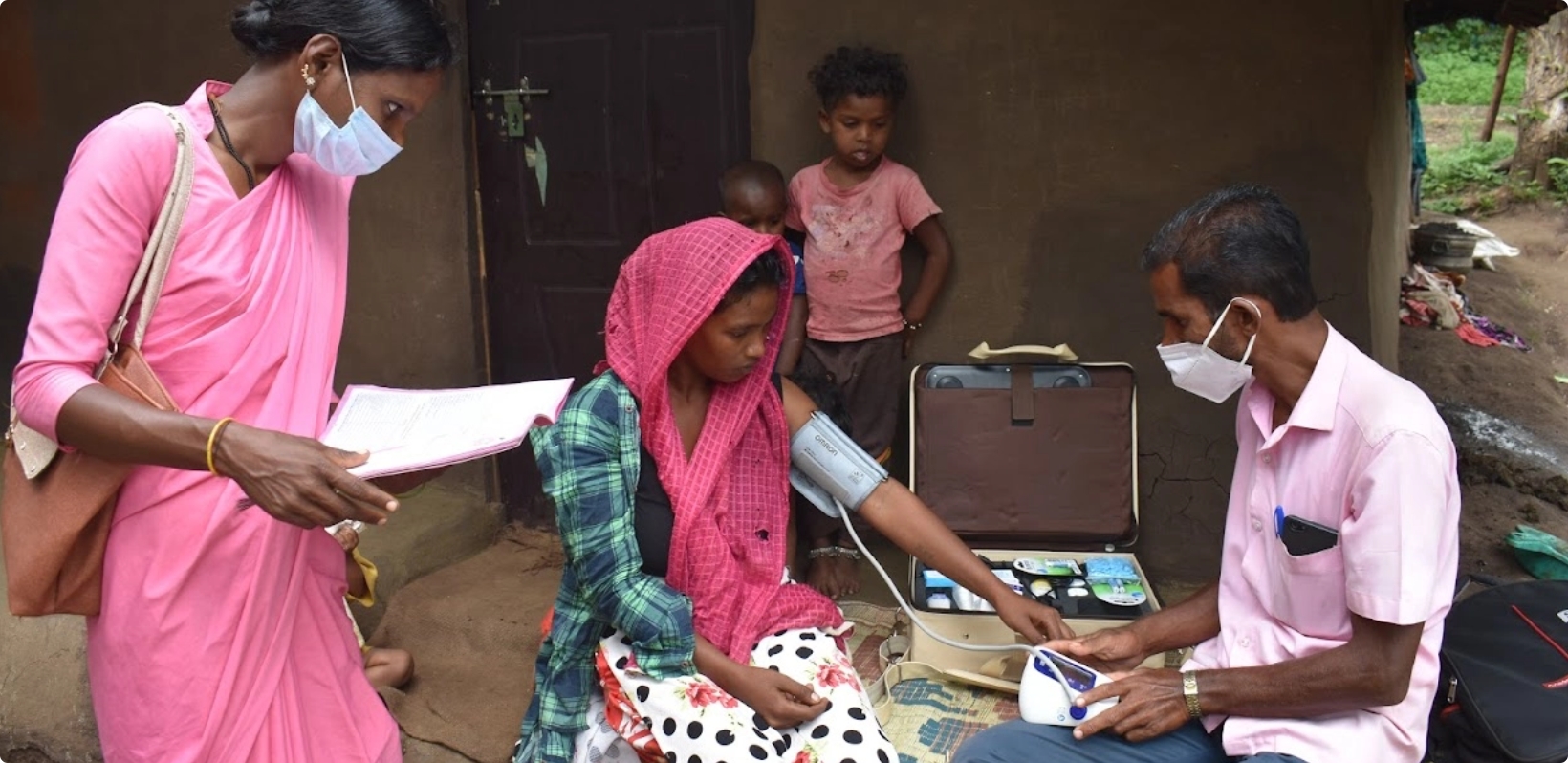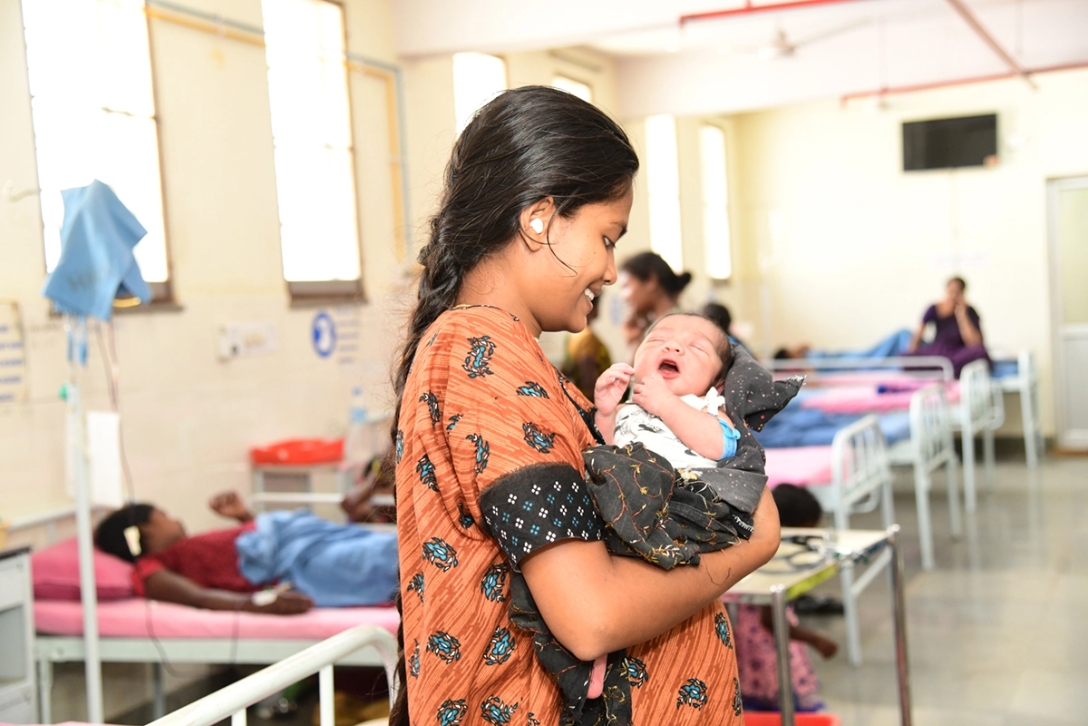
Collective community action safeguards maternal newborn health
Collective community action has the ability to complement & strengthen institutions, leading to a more democratic and non hierarchical relationship between the two, and inspiring a change that is long lasting.
Recently, SVYM’s Reproductive & Child Health Program (RCH) achieved a milestone in the form of 1000 Blood Units collected through 13 blood donation camps in 2020-21. But what is really striking about this achievement is not just the volume of blood collected and restocked at all blood banks supporting the RCH Program, but the change it has brought in terms of perceiving and demanding equal health care, in our case, by indigenous tribal communities.
Almost looking through the tense expression on the faces of the family members of an anemic pregnant woman with a rare blood group in labour, SVYM’s Reproductive & Child Health facilitator stressed his memory and recalled something that was about to save the pregnant woman’s life.

The invaluable contribution of the community members in these blood donation camps resulted in saving 125 lives in the year. (Both High Risk Pregnancies & emergencies requiring blood transfusion).
He said, a couple of days ago in SVYM’s Blood Donation Camp, we had a donor with the same blood group, signaling everyone to rush to the hospital and prepare for blood transfusion. The facilitator called up the blood bank and procured the blood. Thanks to the availability of blood at that critical time, both the mother and child were saved. Thanks to the blood donation camps that owe their success largely to community participation, blood banks are able to value & positively respond to the needs of tribal communities.
Dr Dennis Chauhan, Head of SVYM’s Community Health Program, says that roughly 99% of pregnant women in the indigenous tribal communities served by SVYM suffer from anemia (including Jenukurubas given the status of Particularly Vulnerable Tribal Group by the Govt. of India) and as a result, there is a considerable danger of blood loss, and their lives are at risk during childbirth. This is something that we needed to take seriously as a significant commitment to one’s health.
In 2020-21, SVYM conducted 13 blood donation camps and collected over 1000 Blood Units. The invaluable contribution of the community members in these blood donation camps resulted in saving 125 lives in the year. (Both High Risk Pregnancies & emergencies requiring blood transfusion).
The value of 1000 blood units comes close to around INR 2,00,000, translating in equal amounts as the out of pocket expenditure saved by tribal families during institutional delivery and emergency situations.
How can we forget the most impressive gestures by community members, some of them pooled in money to serve the blood donors with coconut water & refreshments. Local organisations, Anti Naxal Force personnel, youth & healthcare institutions and blood banks all coming together towards achieving zero maternal mortality amongst the tribal communities.
Program Partner Highlight – Logo & Short Text
RELATED STORIES
The form is not published.
Support Indigenous Tribal Families
Like many mothers-to-be from 51,000 indigenous tribal families served by SVYM, Sandhya’s dream of becoming a mother came true. In the picture, Sandhya (on the right) beams a smile with her baby in Balle Haadi, a remote tribal settlement abutting Nagarhole Tiger Reserve. You can support a dream too by contributing towards SVYM’s Health Initiatives